The small creek near my home has both and they often share the same area, and even the same den. Muskrats are much smaller than beavers, weighing only about three pounds...
Beavers are much larger, with adults commonly weighing sixty pounds or more...
Both of these species are preparing to give birth soon. This morning I photographed a pair of beavers as they gathered dry grass to line their burrow...
Just a few days ago, in the same location, I observed muskrats also collecting dried grass...
When they live in moving water muskrats and beavers use burrows dug into the stream bank...
They always have underwater entrance holes that are most commonly used. Beavers store food such as limbs and twigs both underwater and on the bank over their burrows...
Muskrats are omnivores and, as such, do not compete with beavers for food. Muskrats have been known to eat crayfish, mussels, and insects, but their most common foods are cattails and aquatic plants such as duckweed...
Wood ducks also eat duckweed and this muskrat is in no mood to share...
In still water such, as ponds and marshes, muskrats will create burrows called "push-ups" of grass or cattail stalks...
These push-ups look similar to beaver lodges but are much smaller...
For comparison, the next photo is a beaver lodge that is roughly 60 feet in diameter...
Beavers commonly fell trees in their area. I found the cutting pattern on this one interesting...
Beavers only have one litter each year. If one is lucky there may be an opportunity to see the young, called kits...
This beaver swam to within a few feet of my parking spot...
Because of their similar appearance many people are confused about the identity of these two animals...
If you live near waterways, always pause and observe to see what wildlife may live in your neighborhood.
Thanks for visiting, be well and come back soon.

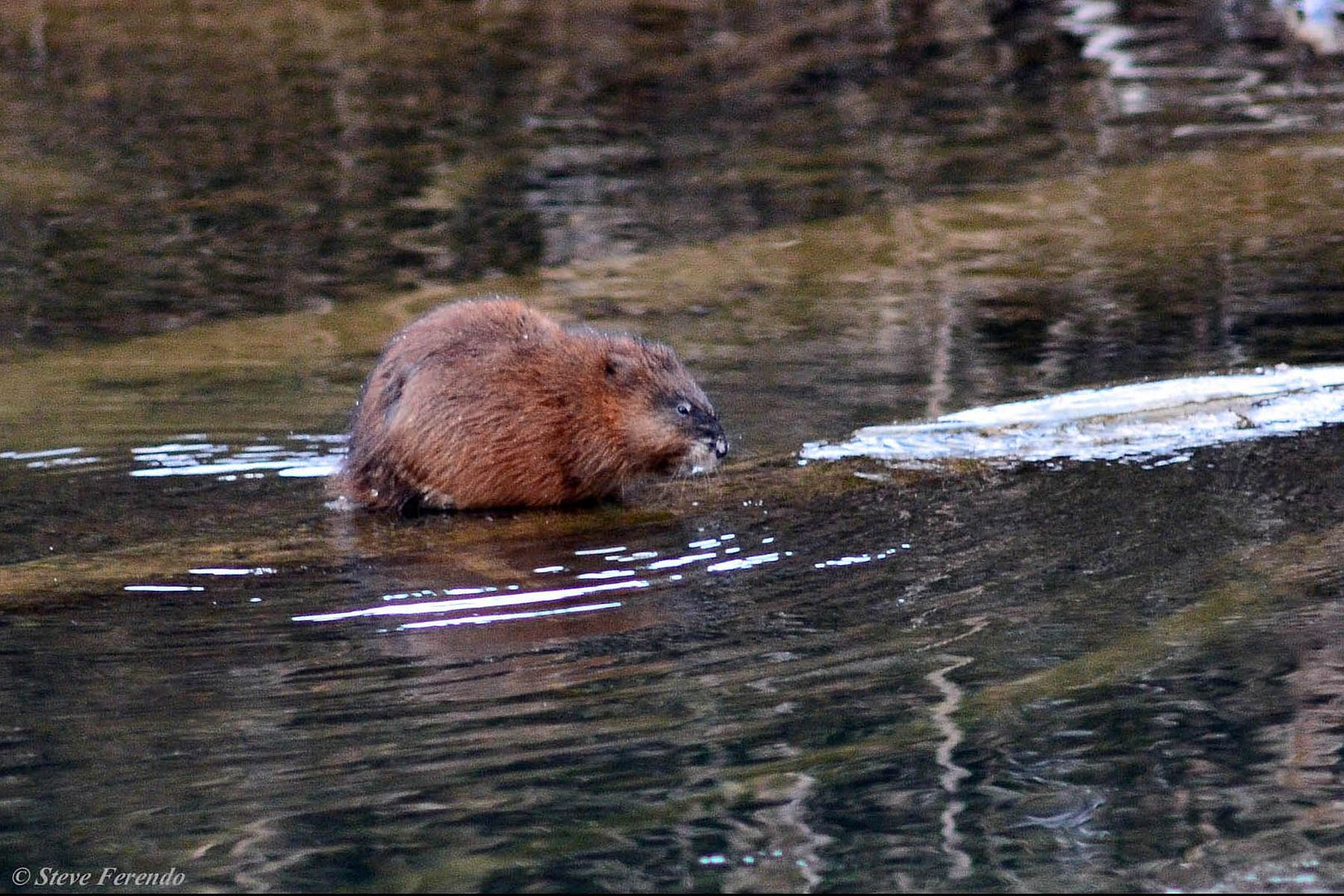
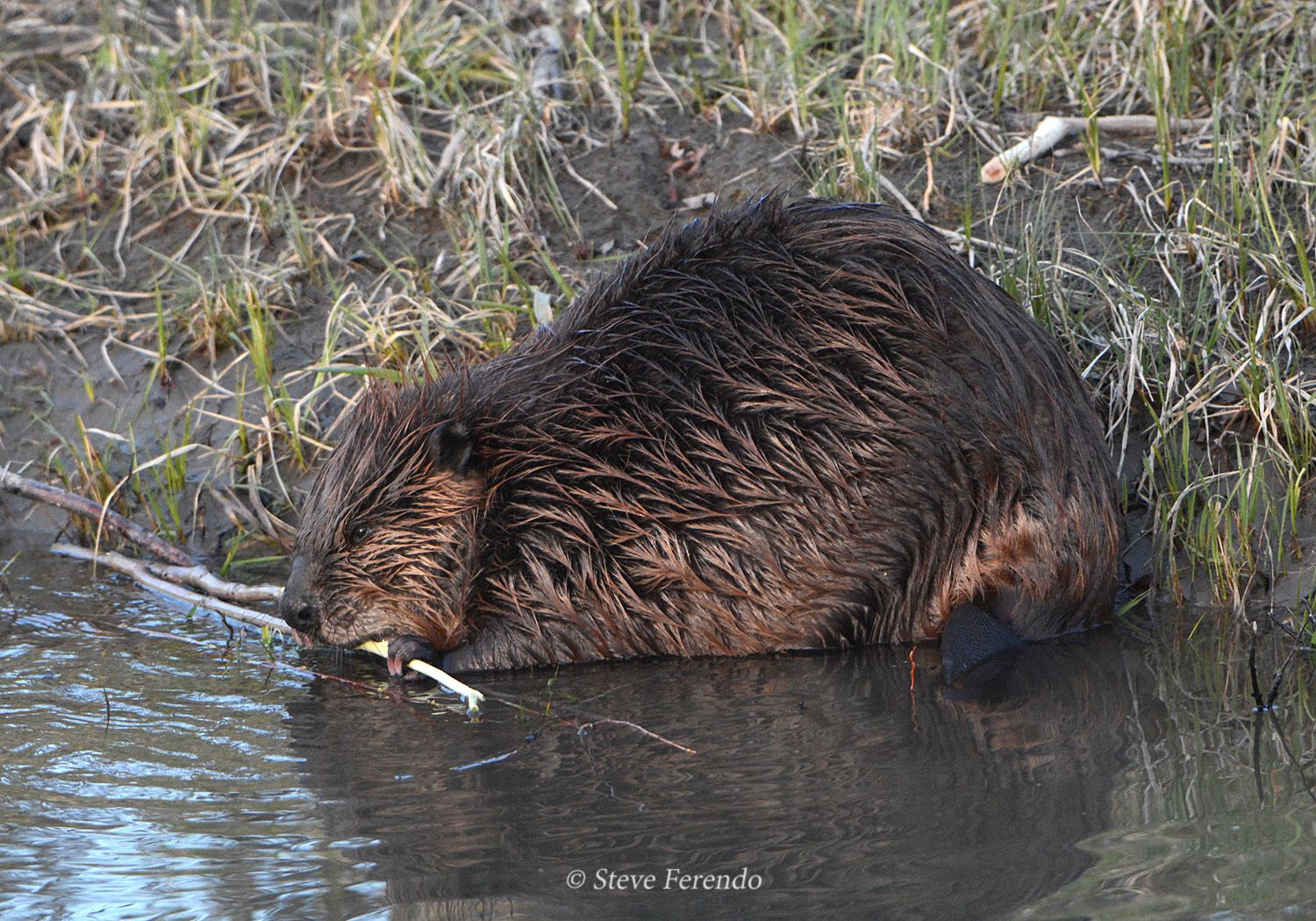
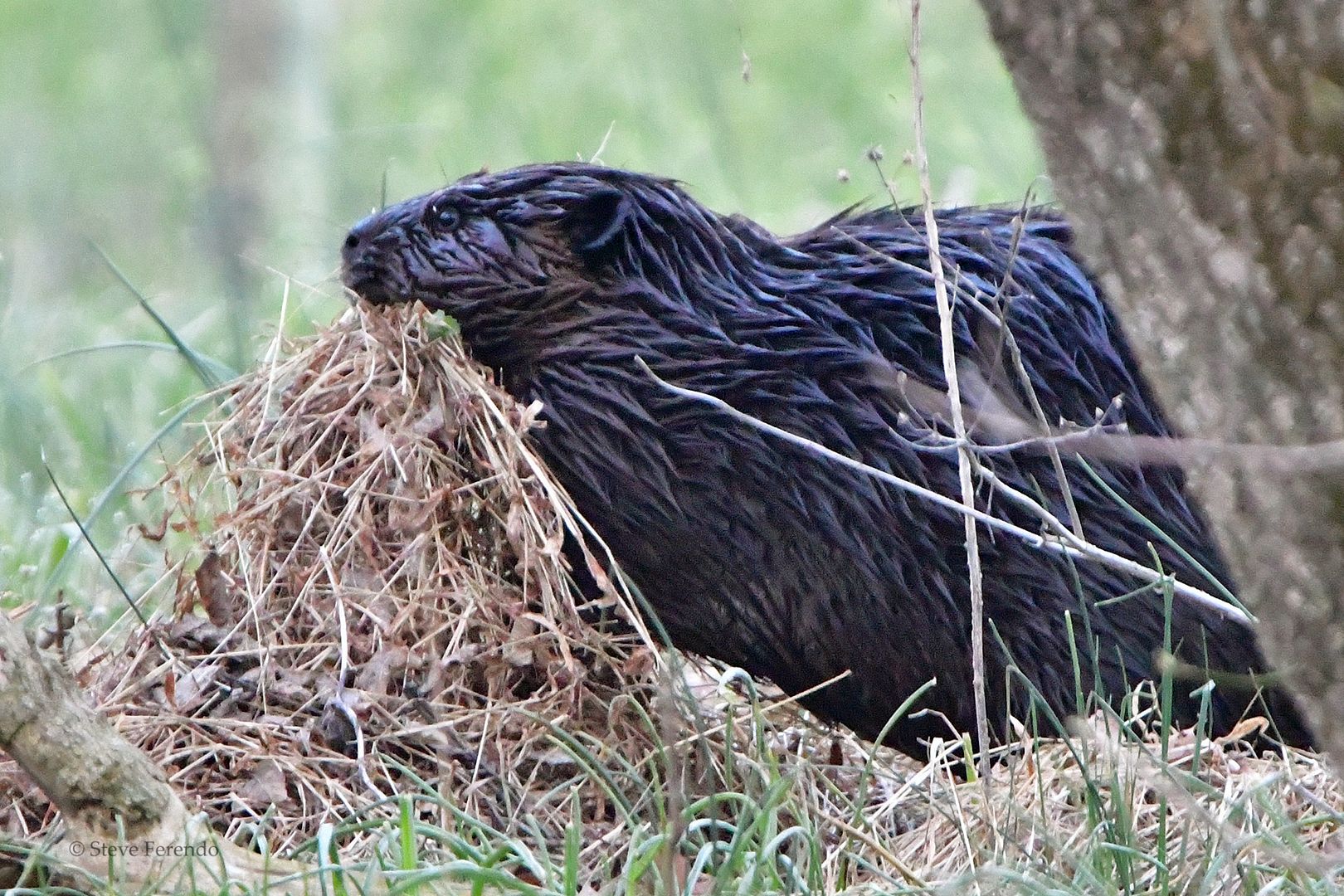
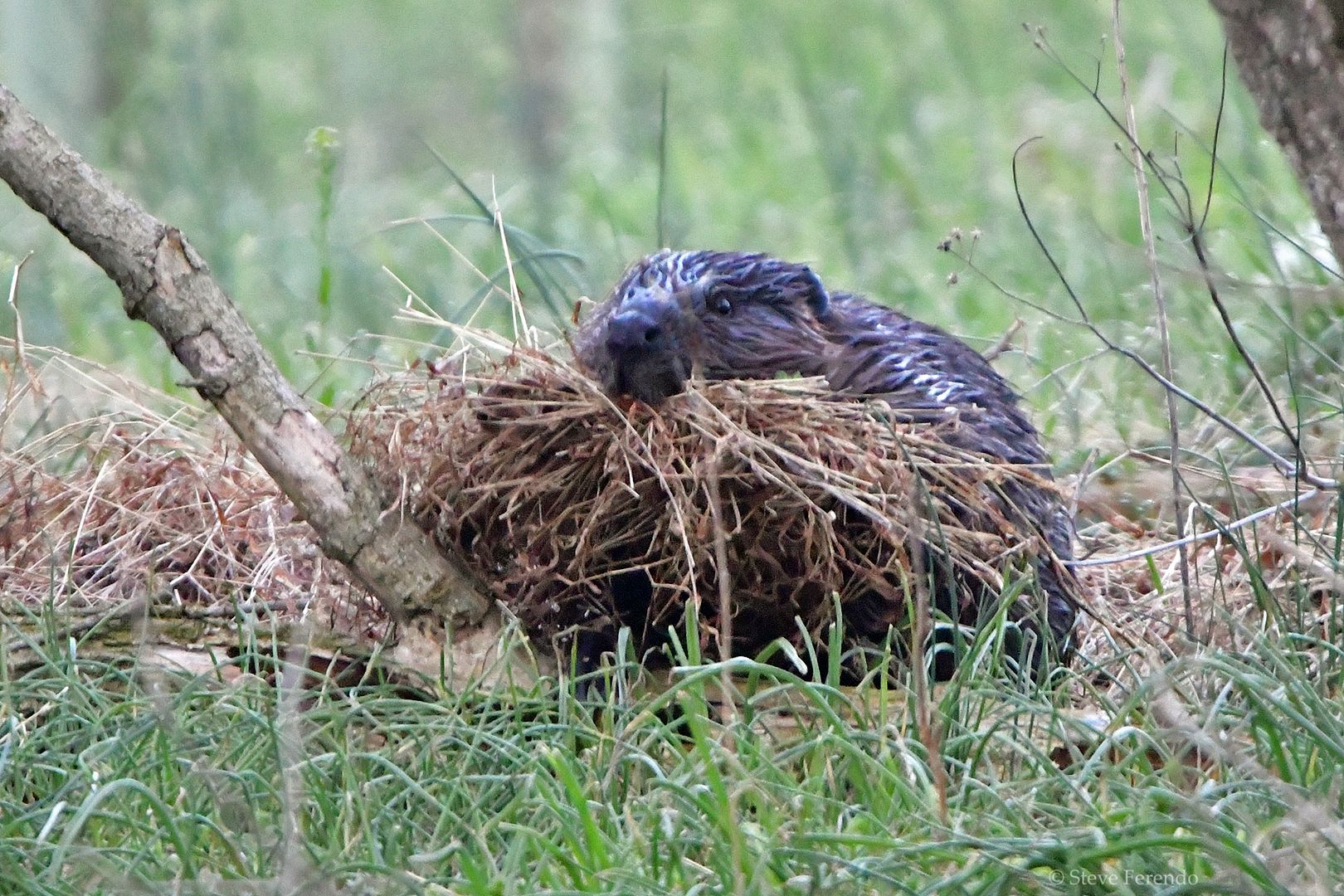
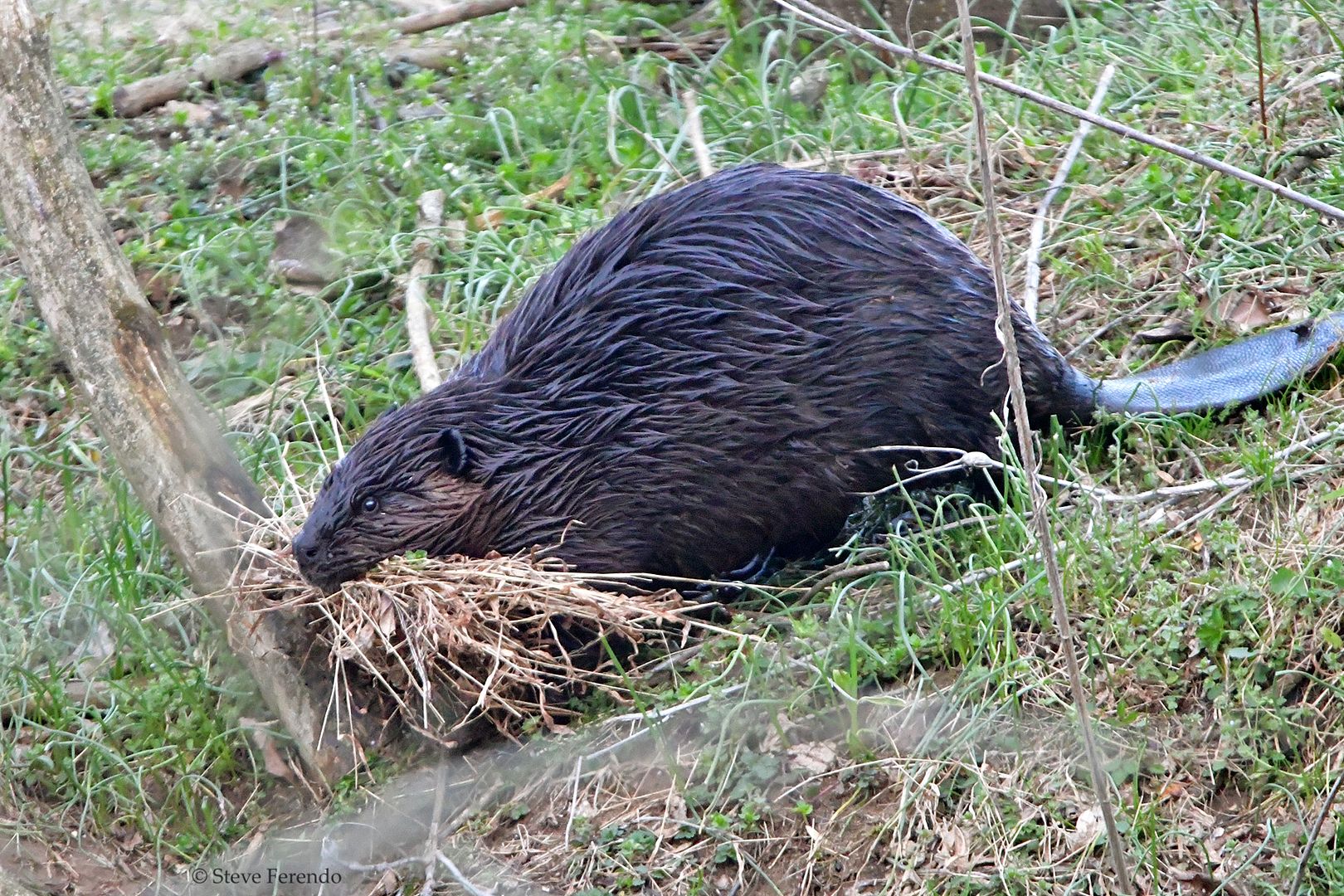
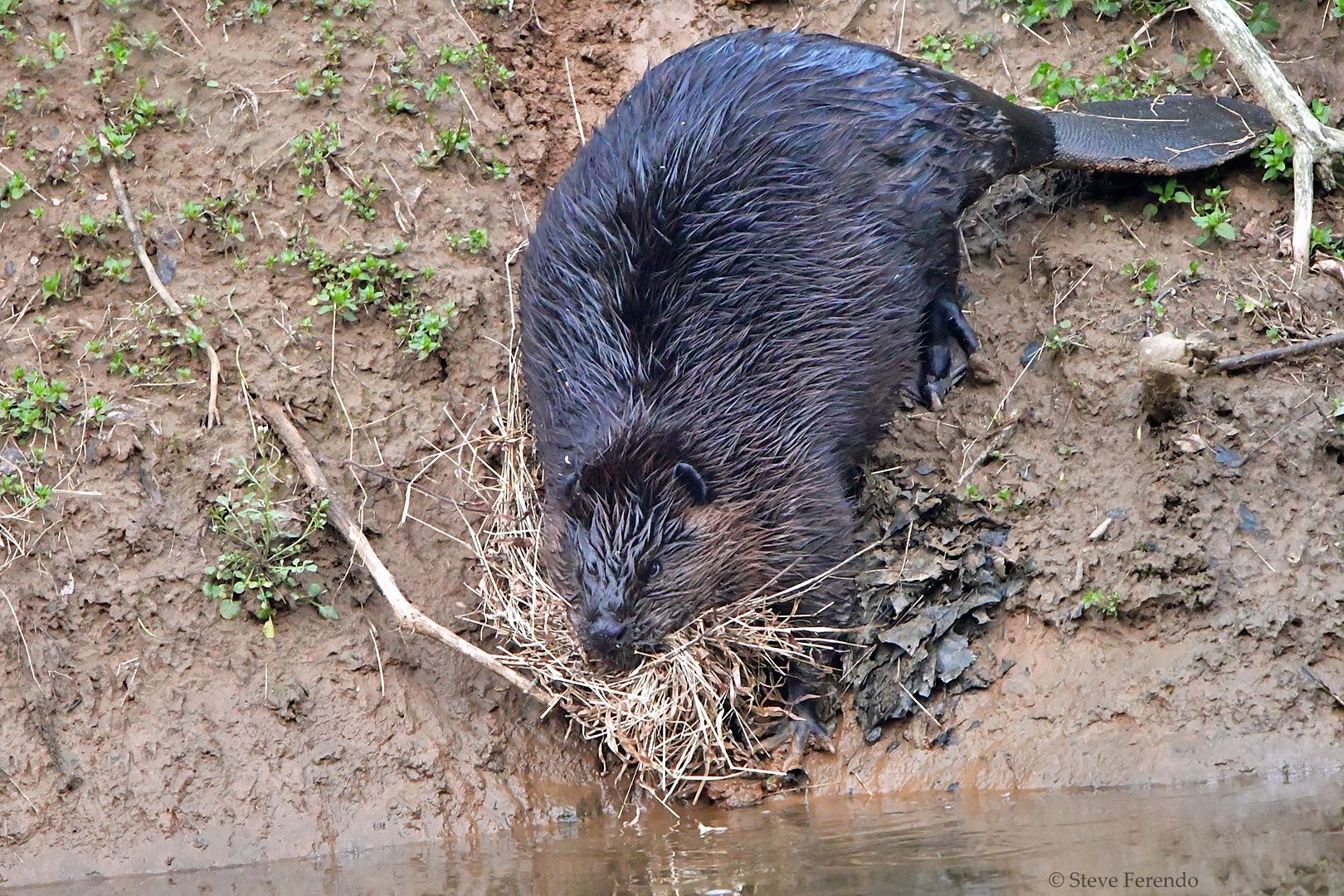
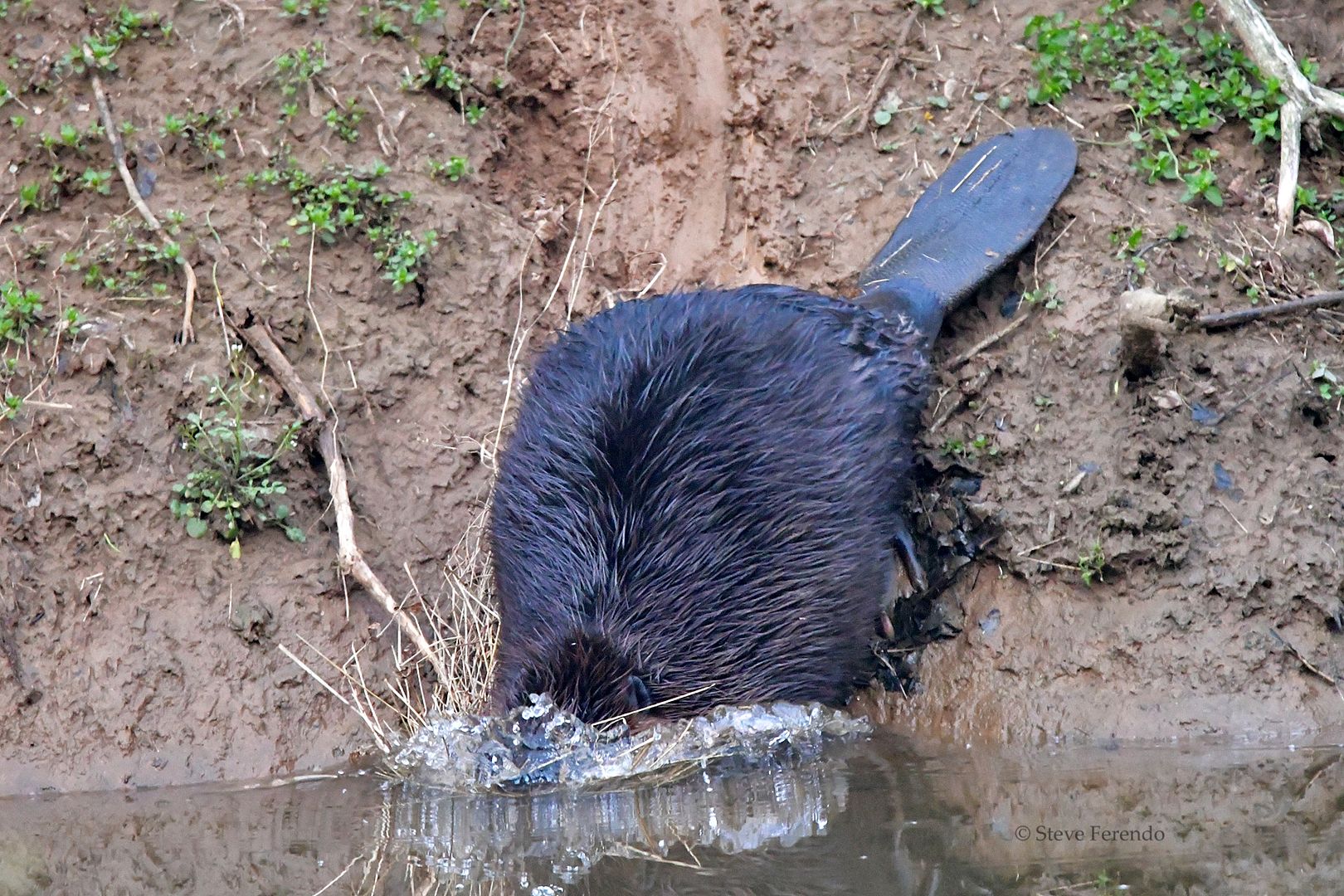
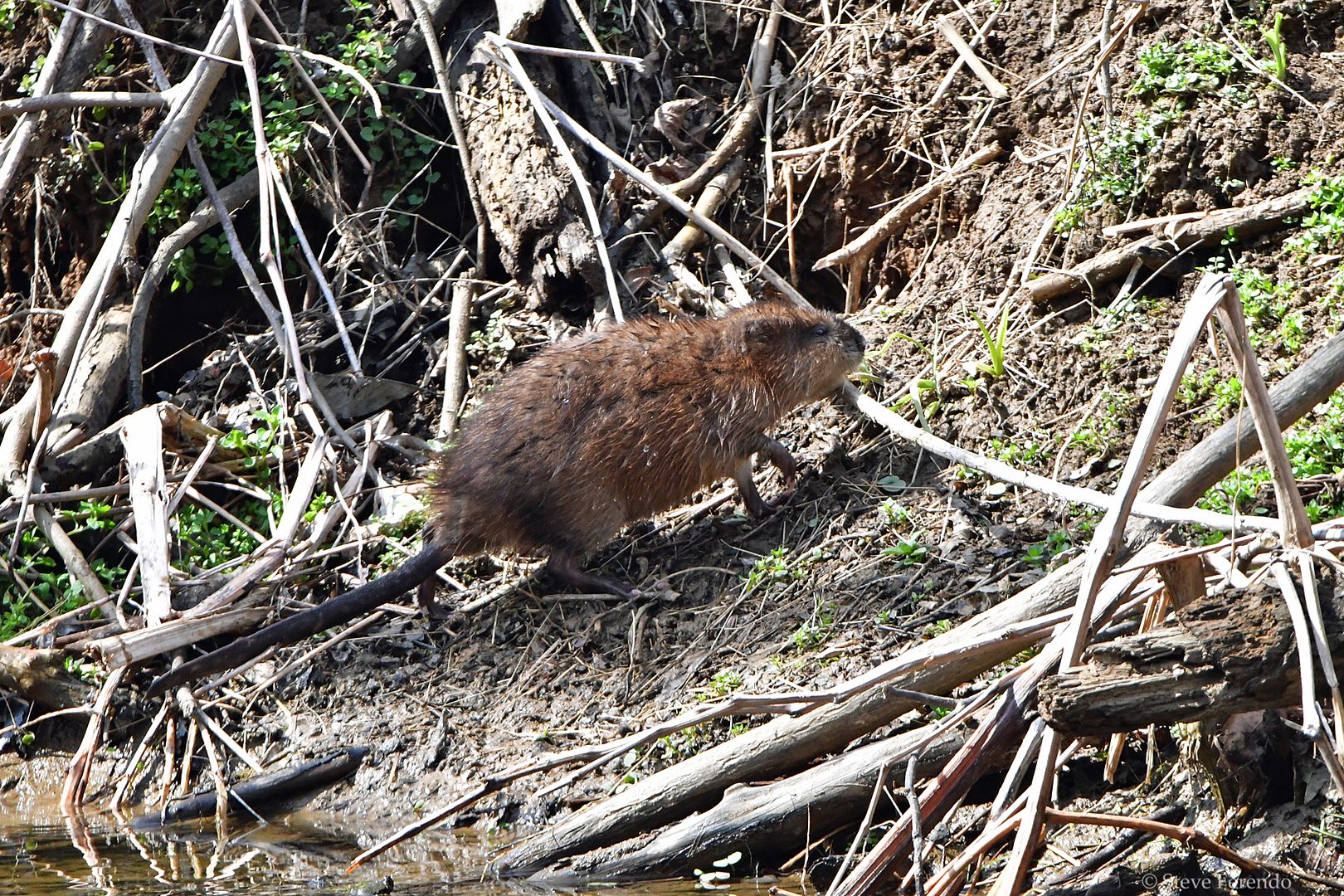
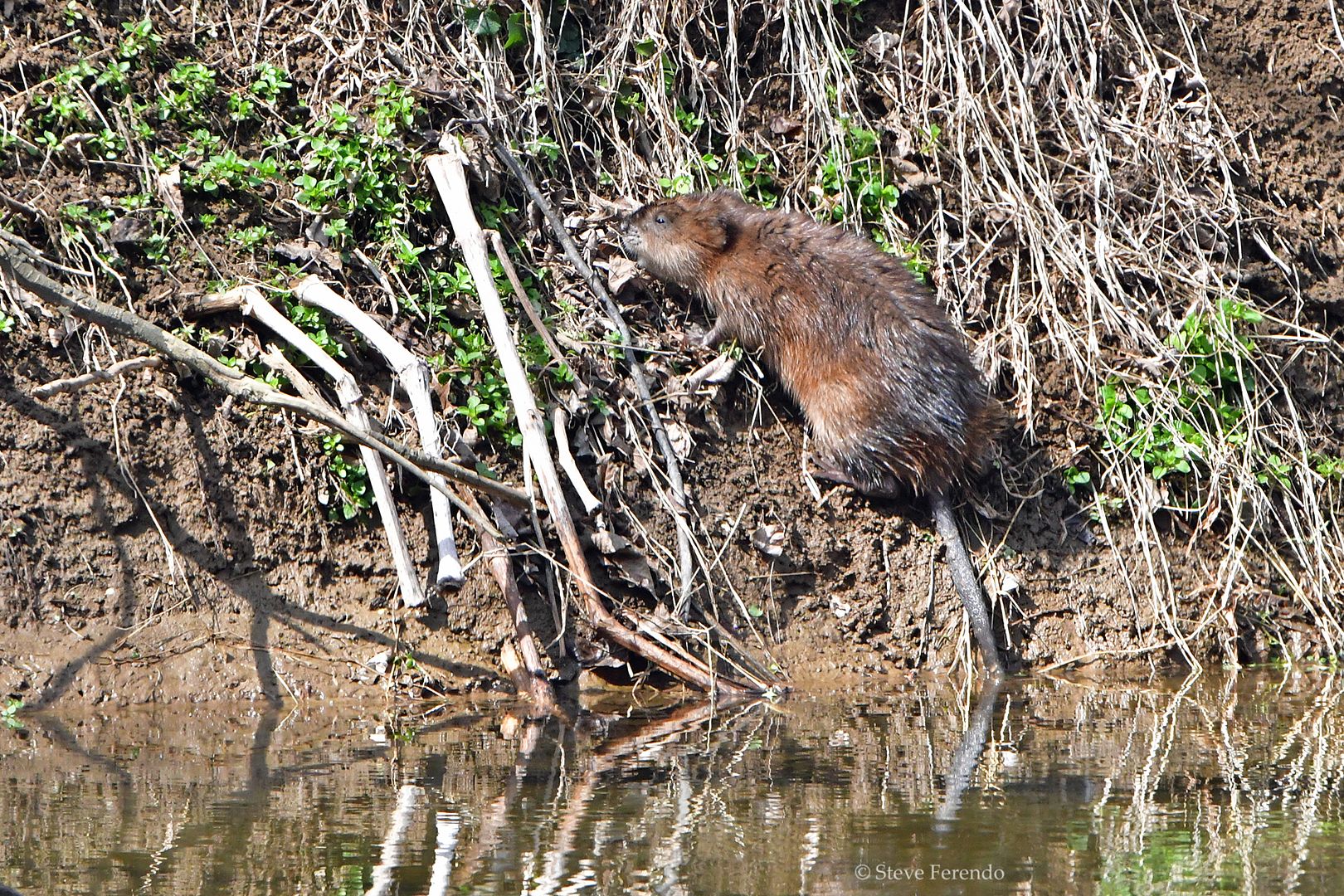
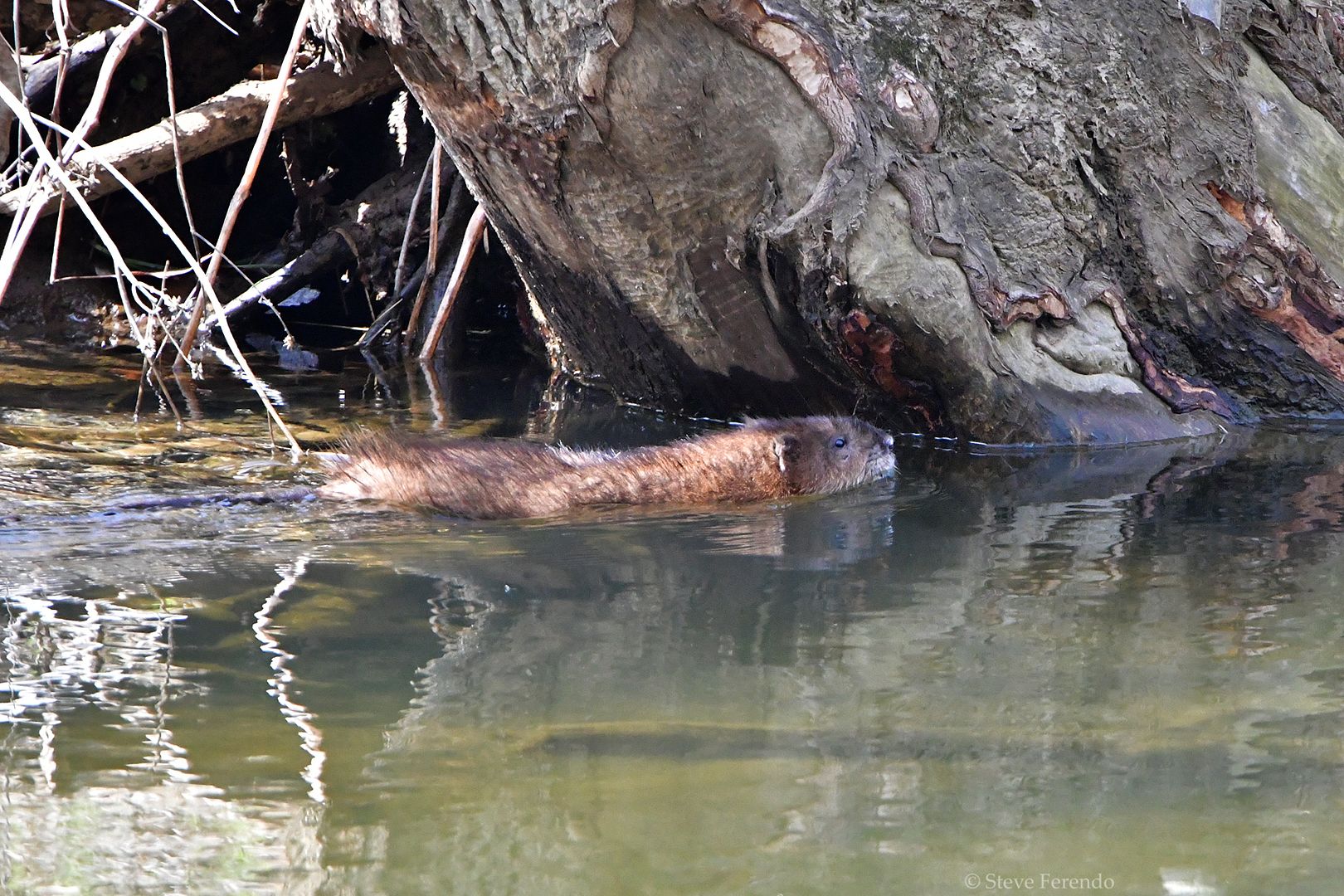
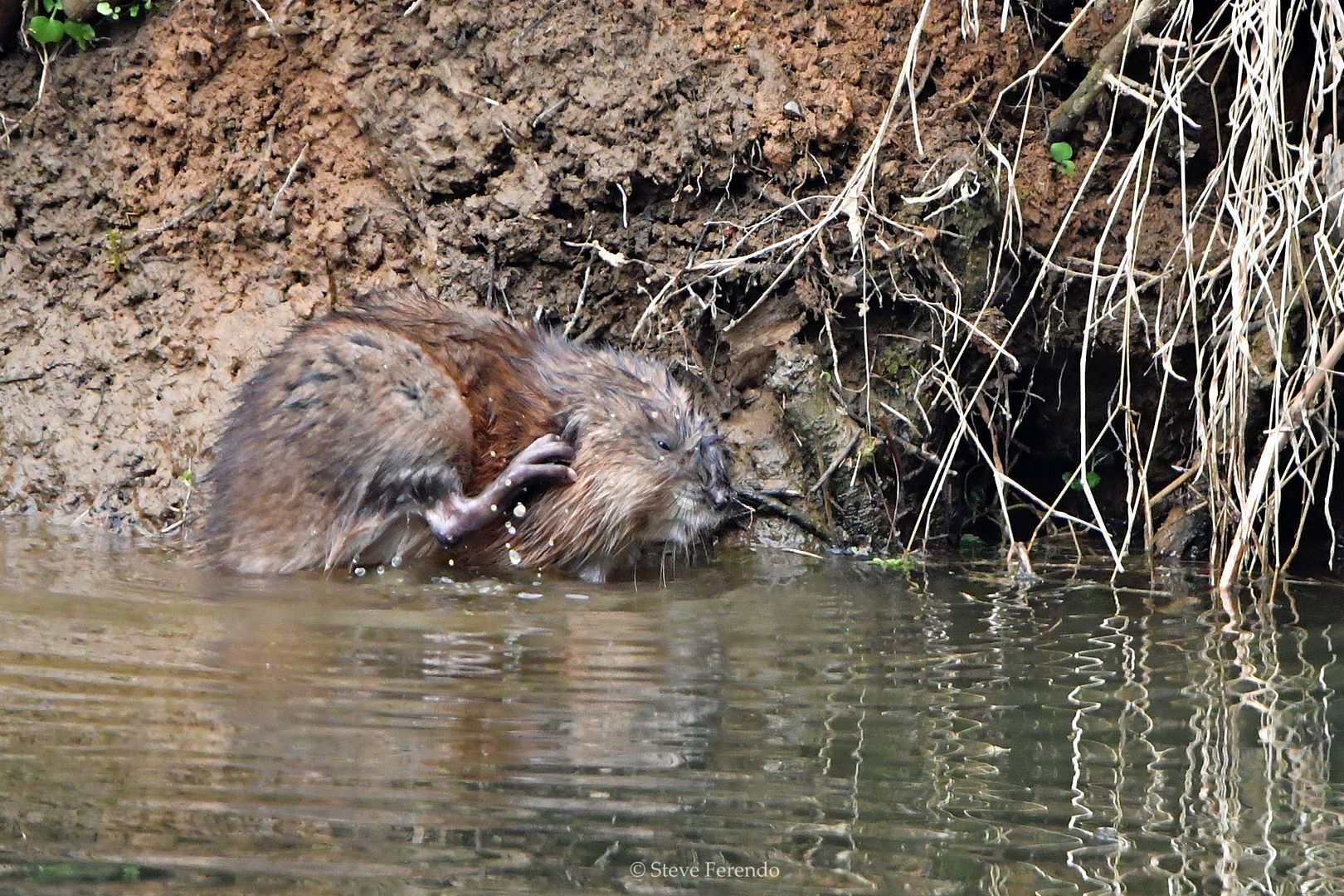
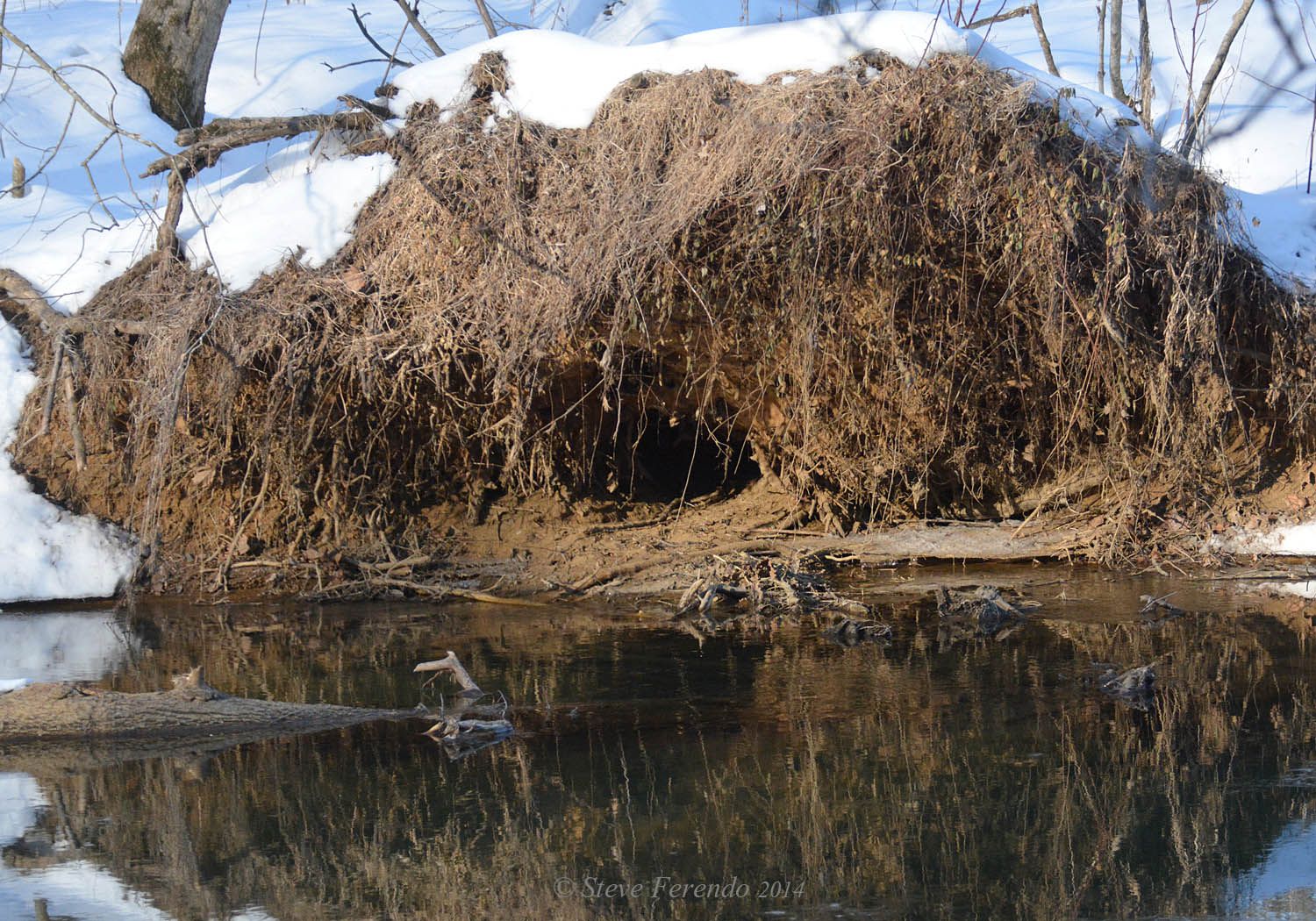
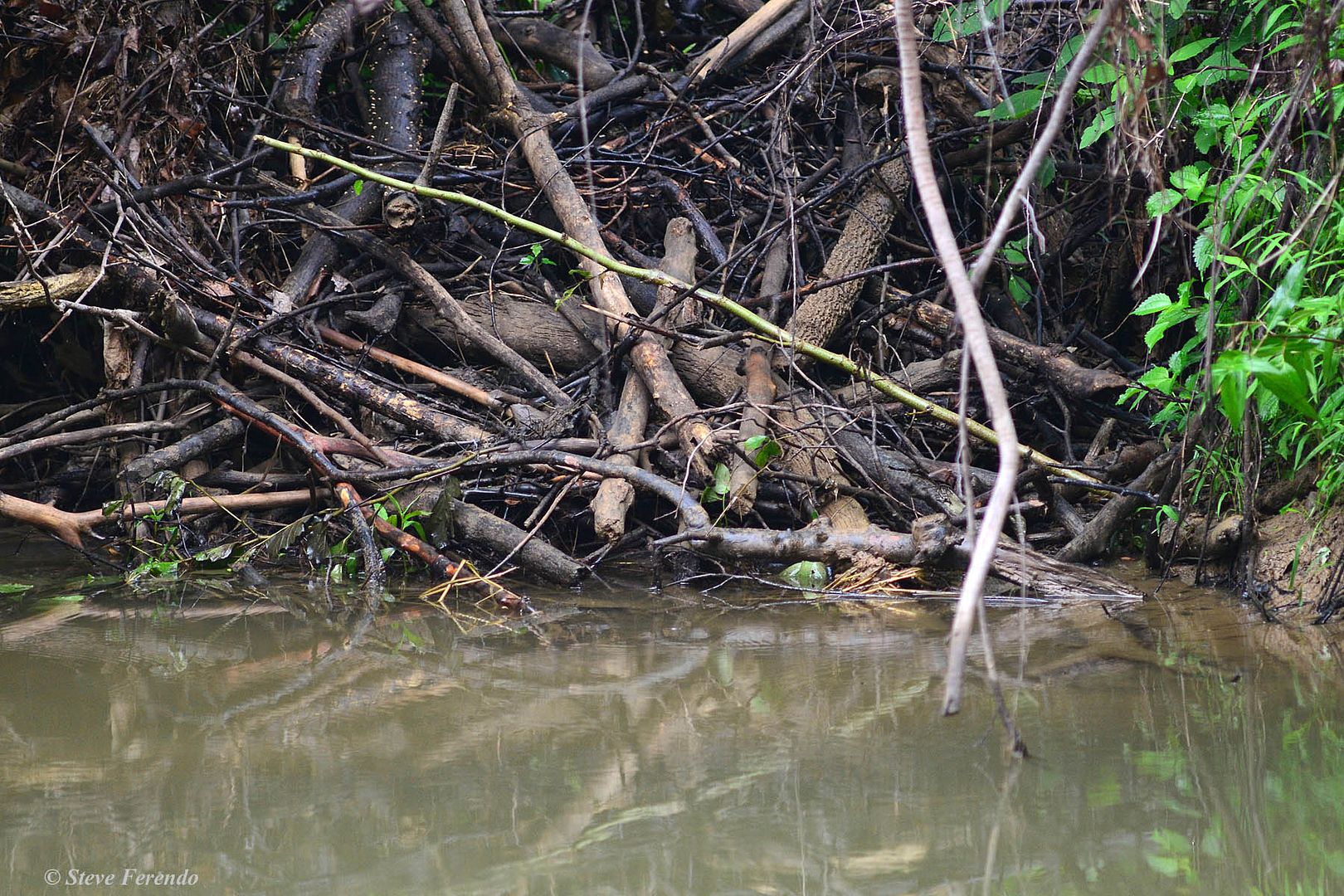
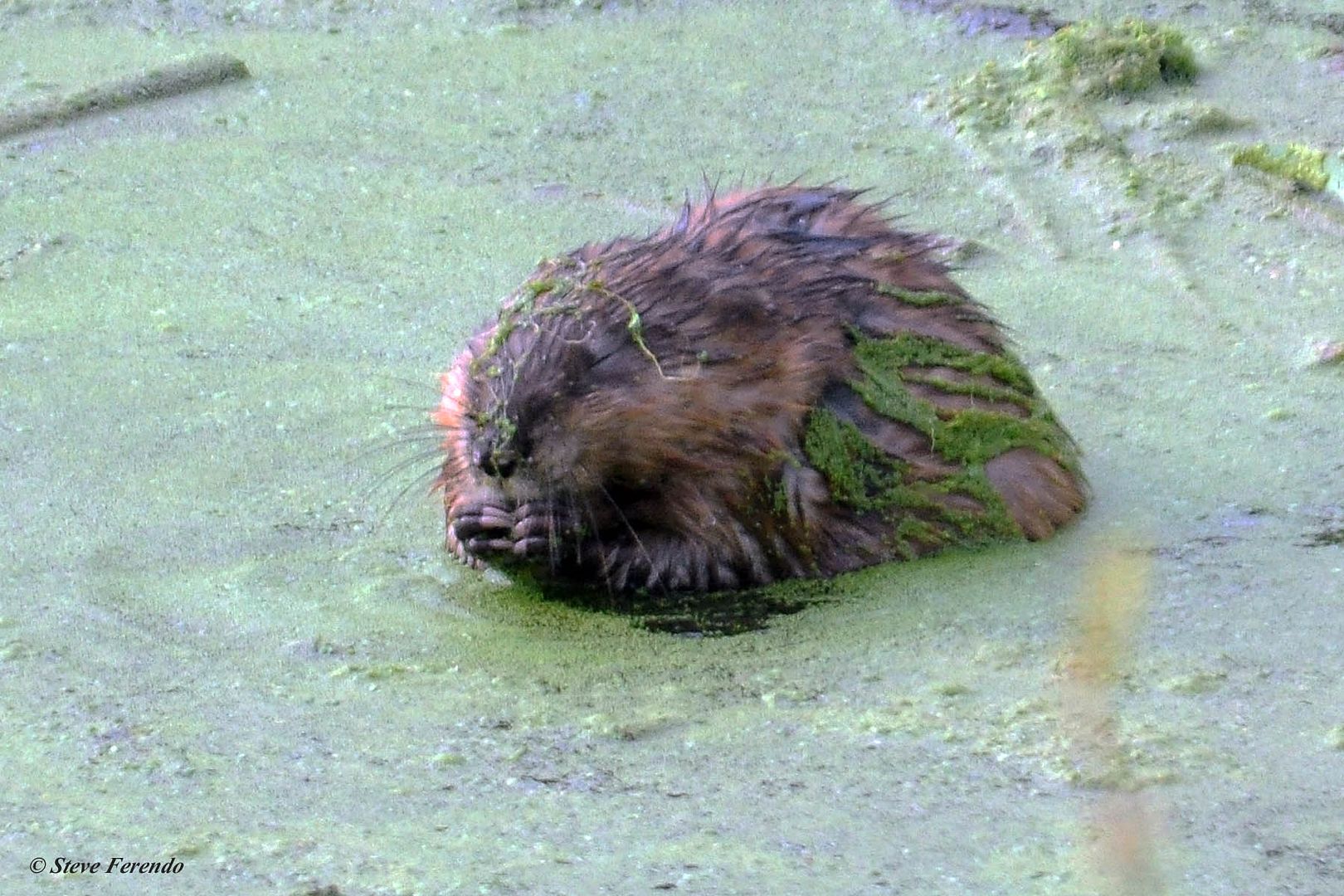
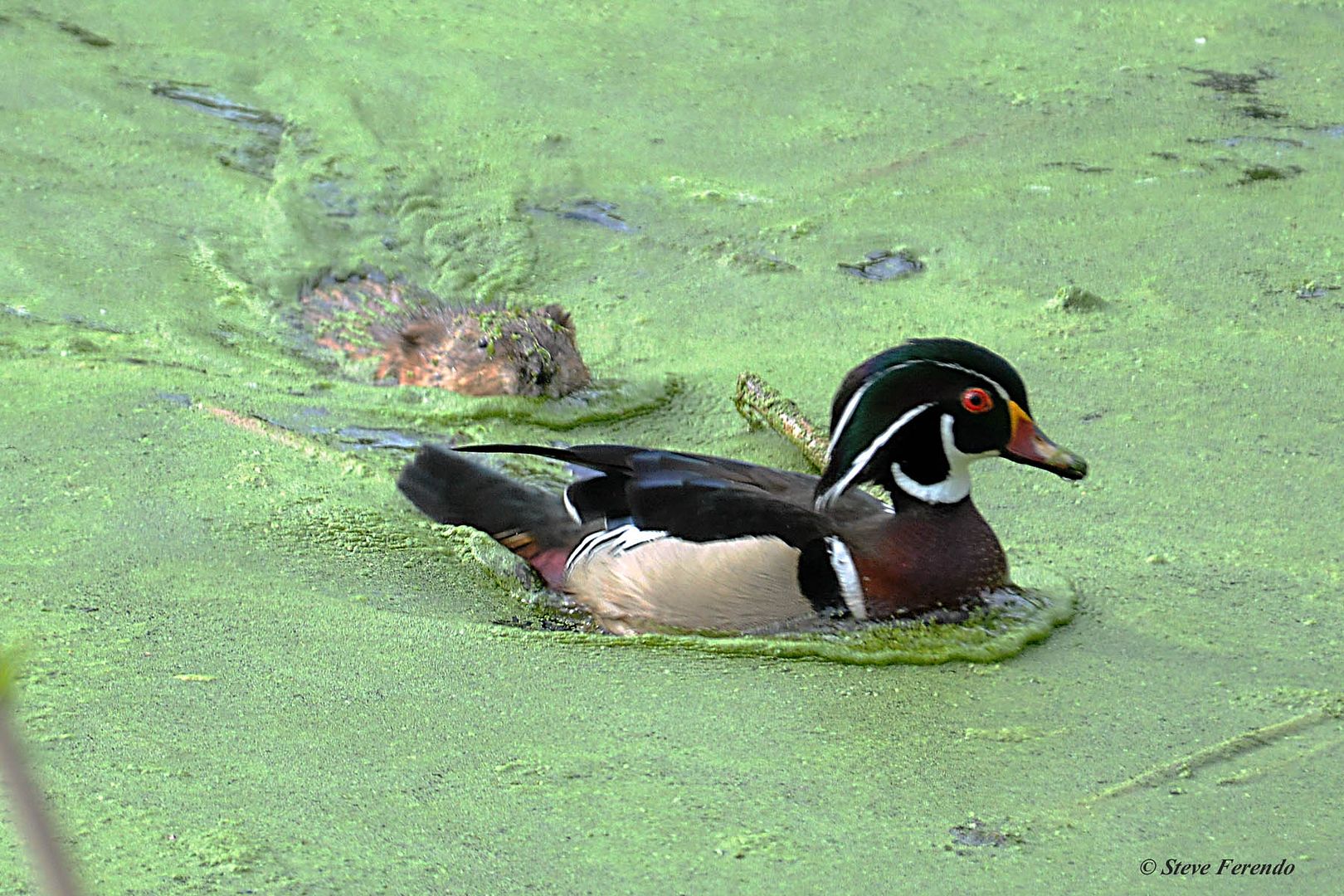
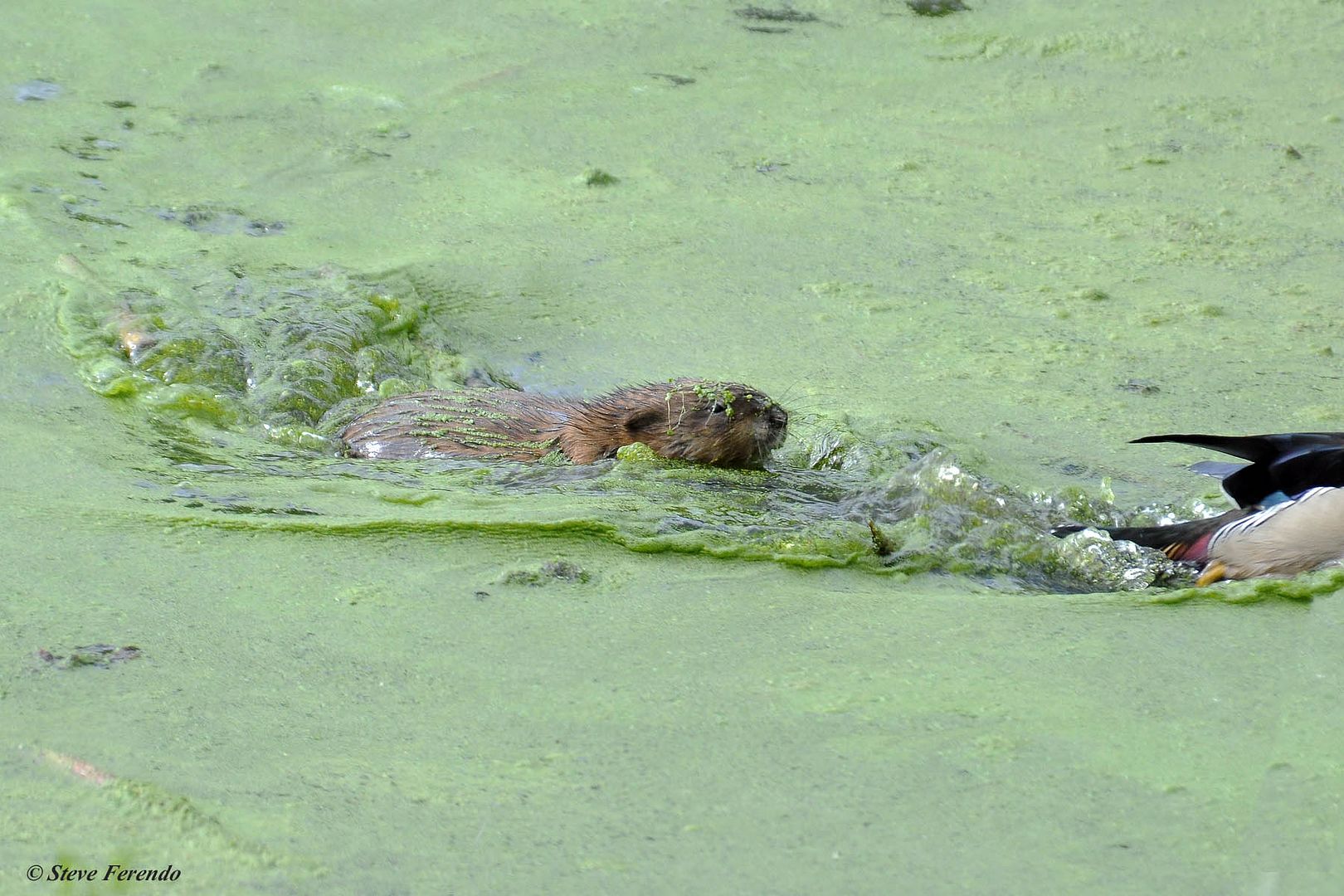
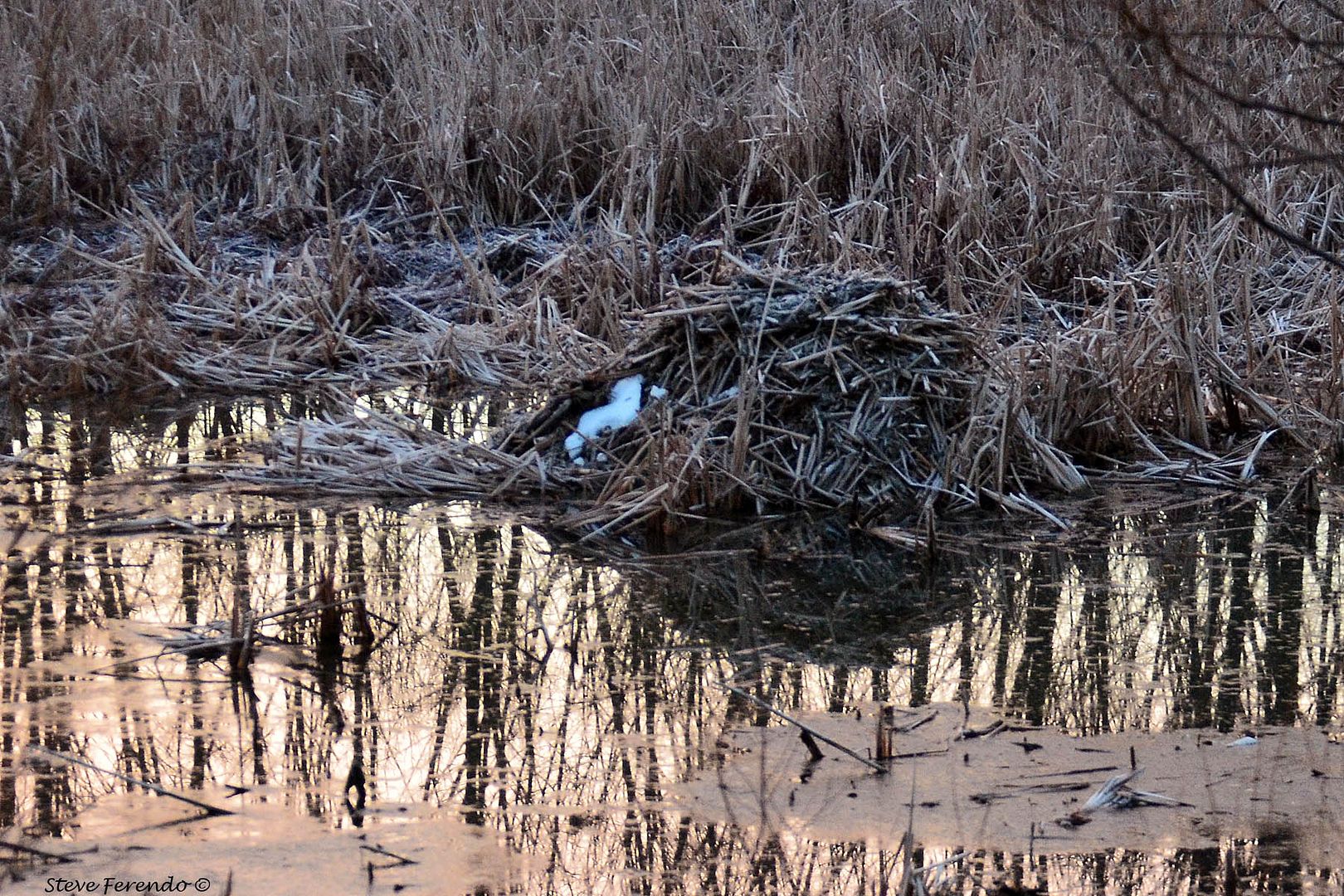
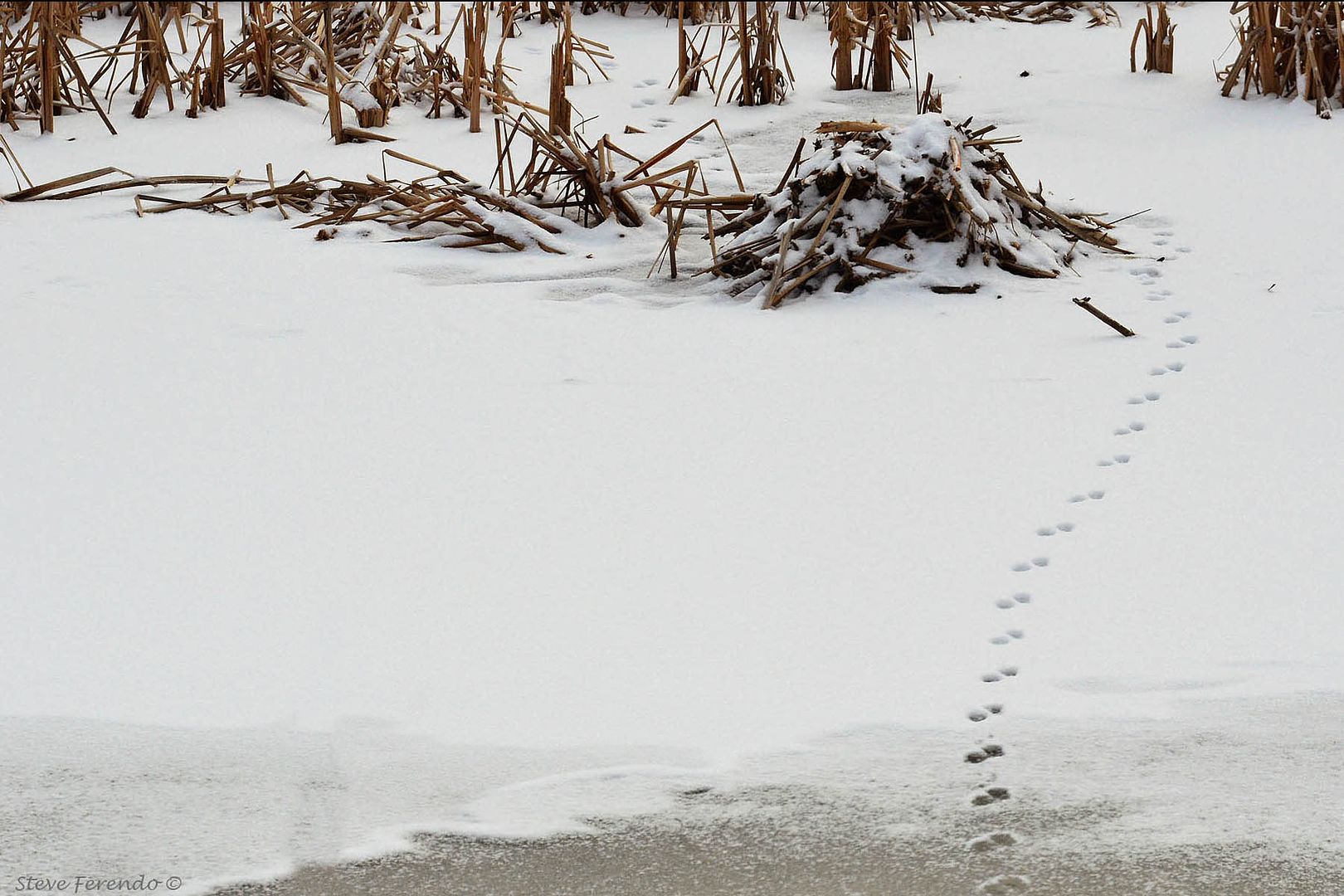
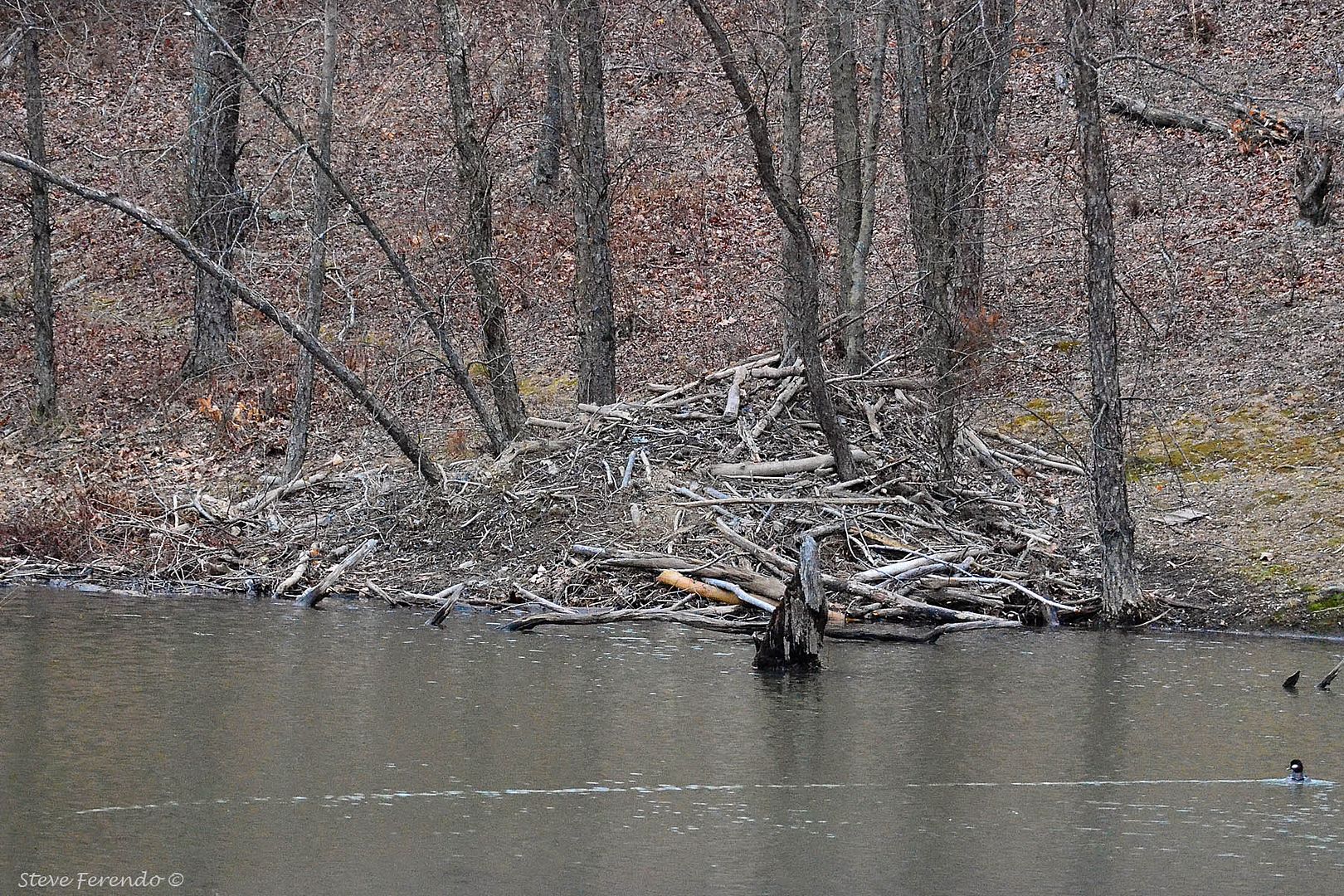

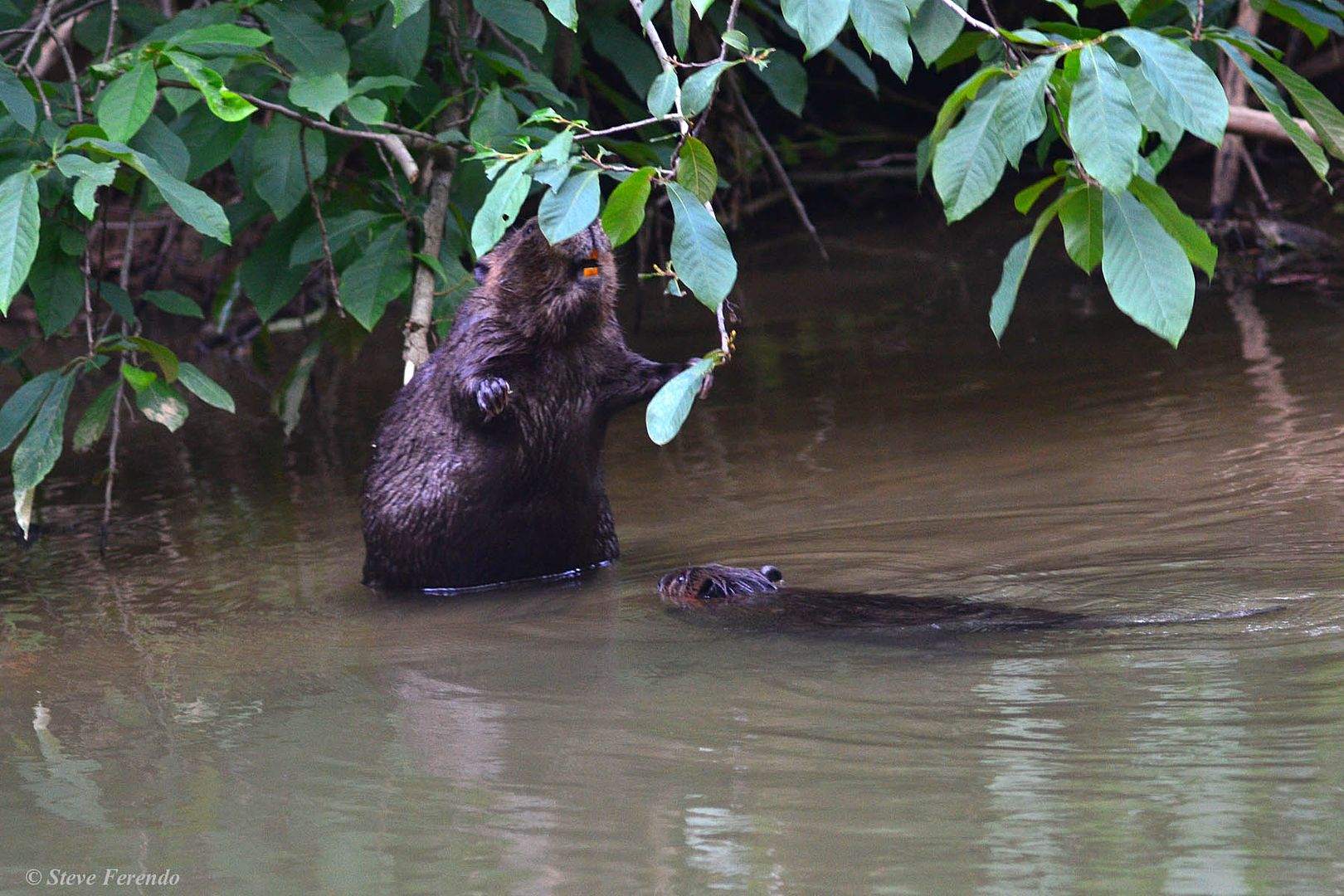
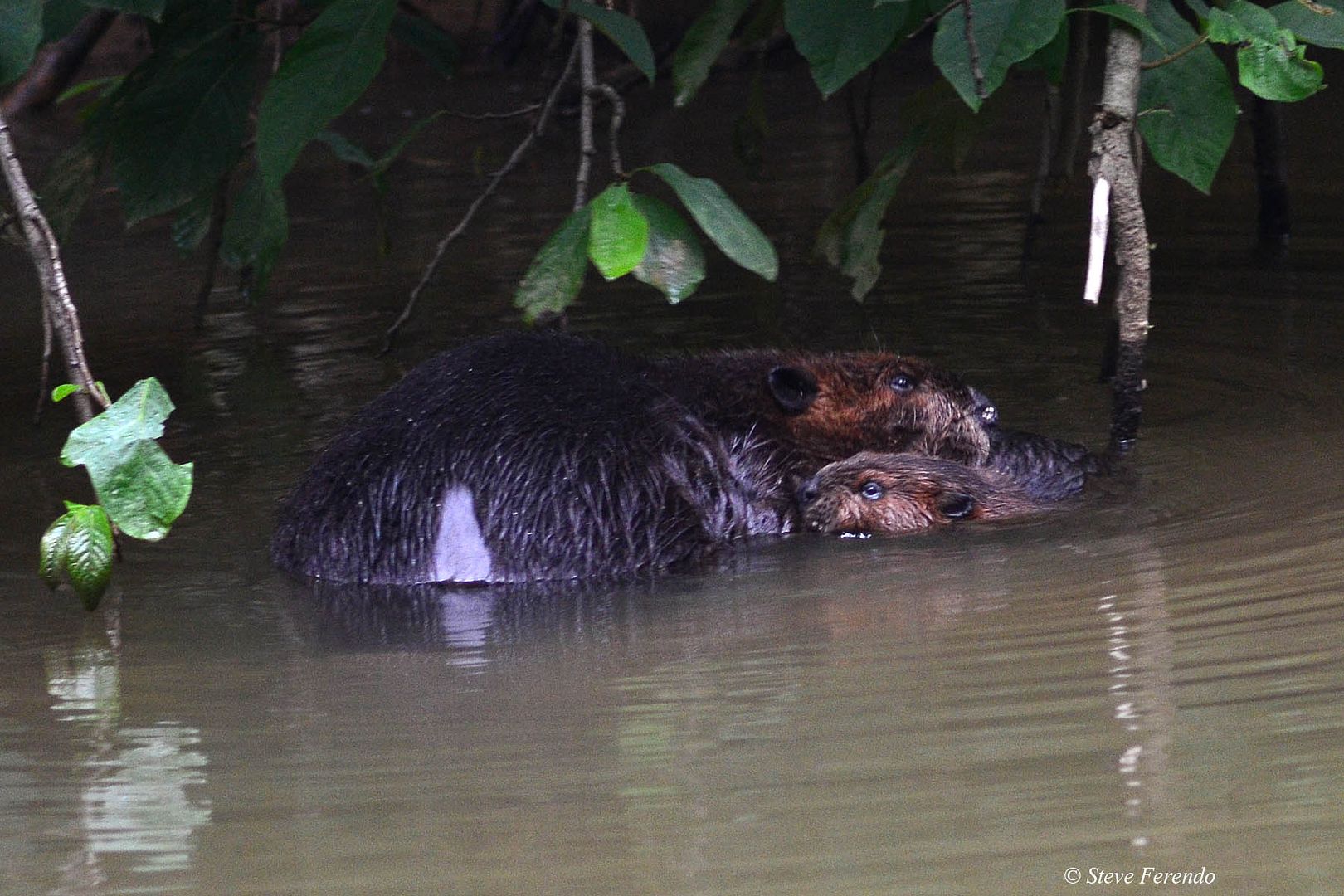
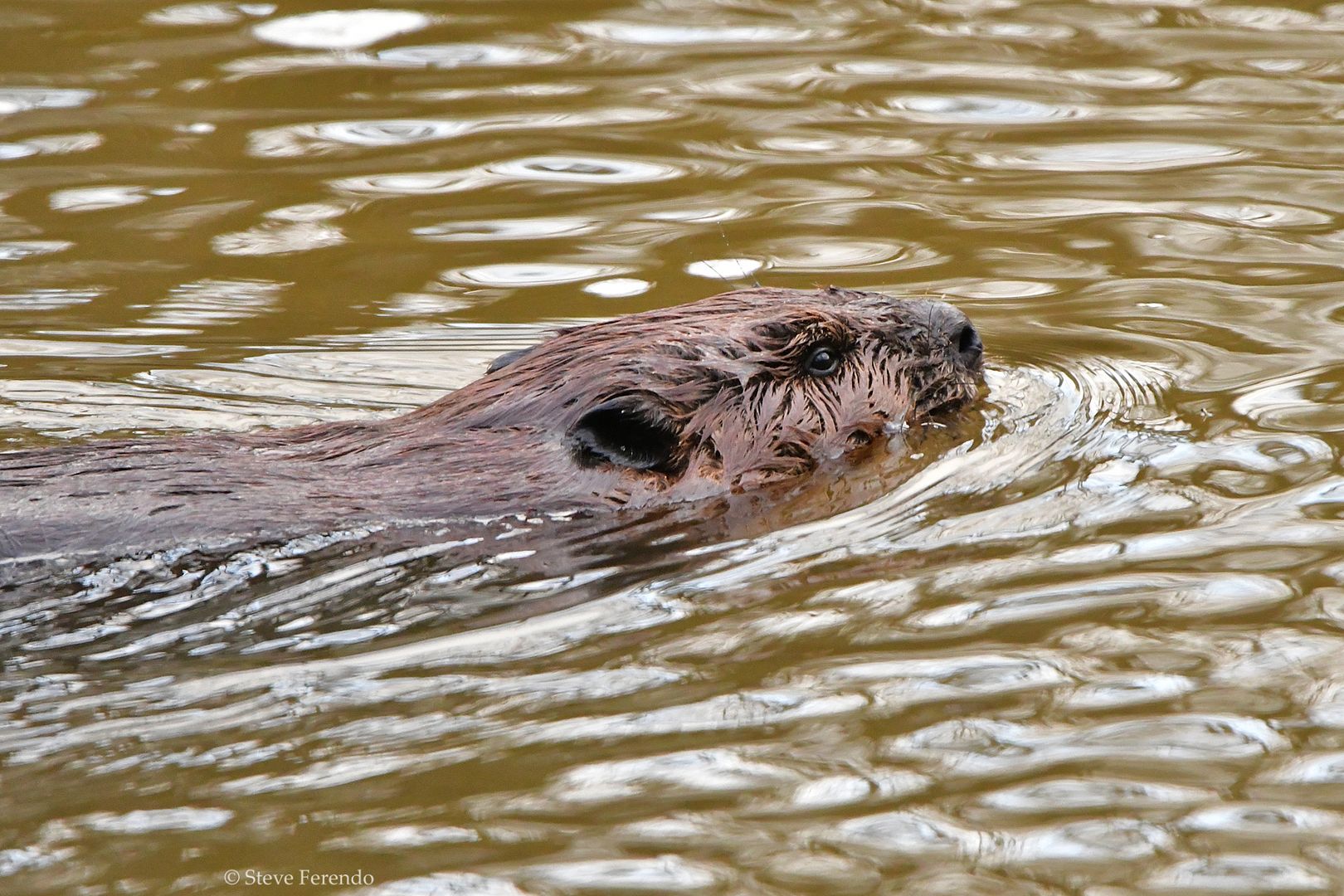
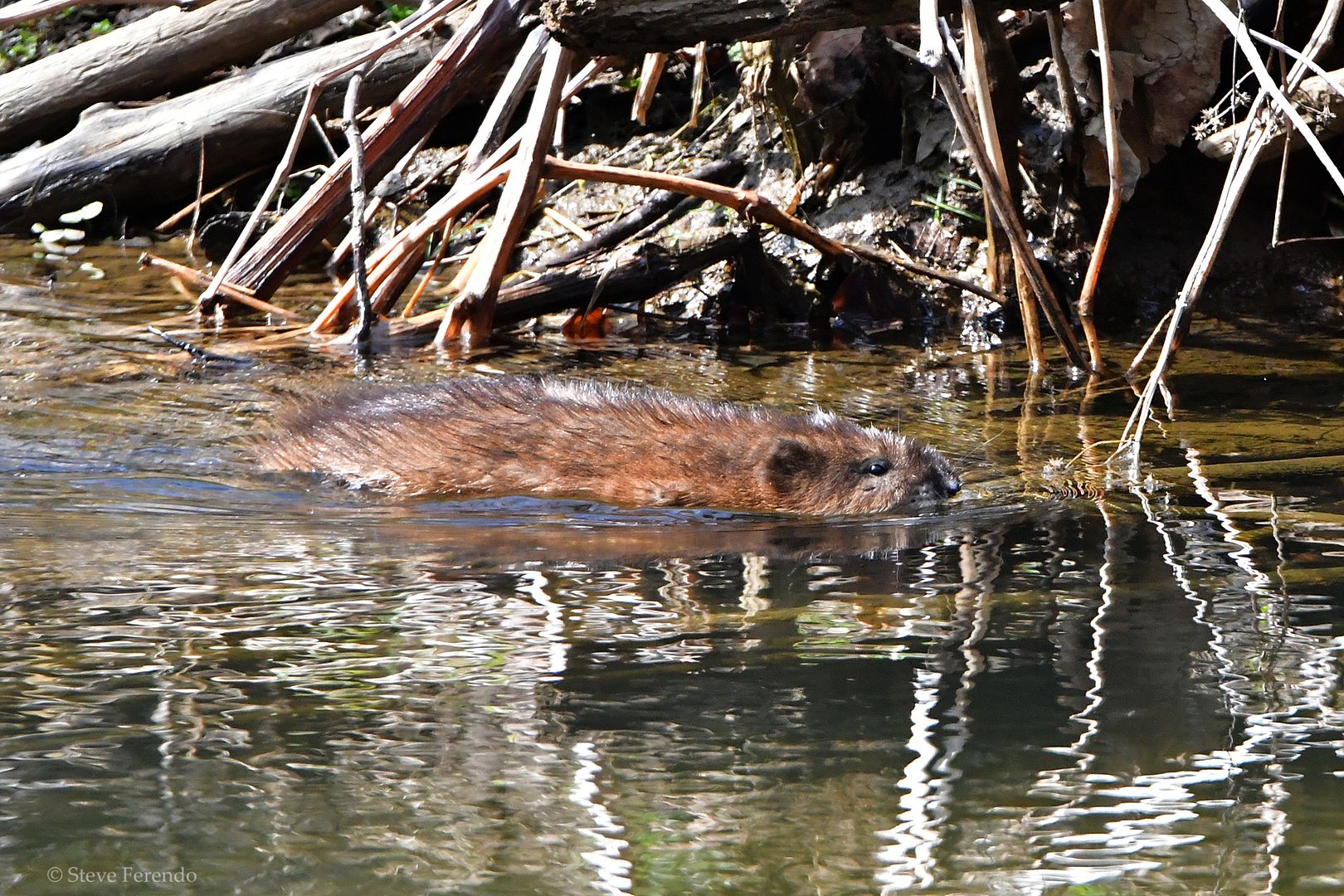


0 Comments